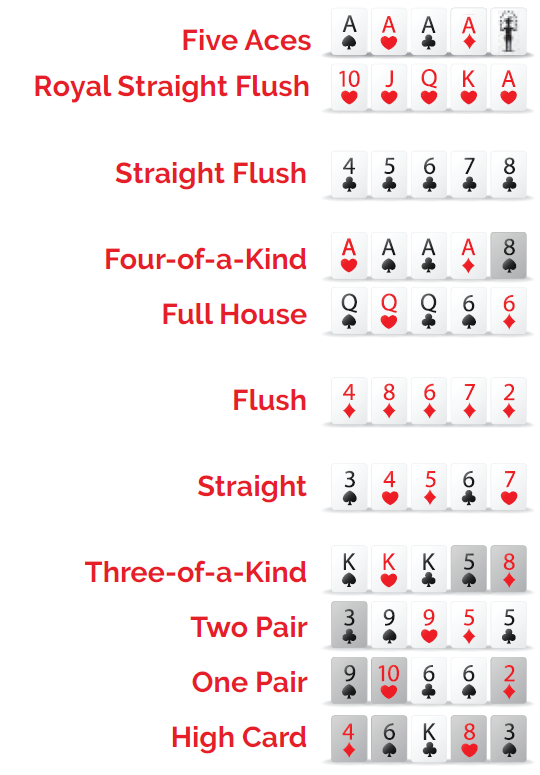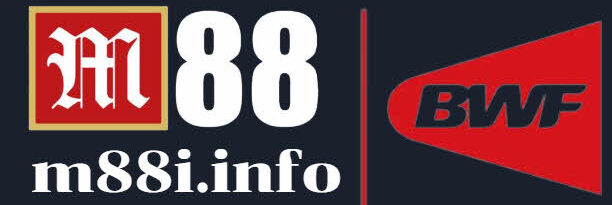The History of Pai Gow Poker
Pai Gow Poker is a fascinating combination of Chinese and American poker traditions. It requires a standard deck of 52 cards and one Joker. Players strategically arrange their cards into two separate poker hands. The goal is to win with two Aces as the highest two-card hand and five Aces as the highest five-card hand, utilizing the power of the Joker.
Pai Gow Poker at Resorts World
Experience the authentic version of Pai Gow Poker at Resorts World, where players receive a 5% commission on all winning bets.
How to Play Pai Gow Poker
Each player is dealt a seven-card hand and must arrange their cards into a five-card hand and a two-card hand. The five-card hand must always have a higher poker rank than the two-card hand.
If i-verify is not available, the dealer will use three dice to determine which player receives the first hand. The dealer will count counter-clockwise from the banker position and deal the seven hands clockwise to each position, whether or not there is a player there.
Players have the option to request that their hand be set according to the “House Way,” which is a predetermined method of setting the hands. The dealer will always set the house hand according to the “House Way.”
Once all players’ hands are set, the dealer will expose the banker’s hand and set it according to the “House Way.” The banker’s hand is then compared to each player’s hand to determine the outcome of the wagers.
Object of Pai Gow Poker
The objective of Pai Gow Poker is for each player to arrange their cards into two hands that rank higher than the banker’s two hands. The five-card hand must rank higher than the banker’s five-card hand, and the two-card hand must rank higher than the banker’s two-card hand. If a player’s hand ranks the same as the banker’s hand, it is a tie. Copies or ties go to the banker, resulting in a win for the banker.
Winning hands are paid even money, while losing hands lose the wagered amount. If one hand wins and the other hand loses, it is considered a push or standoff, resulting in no action taken on the wager.
Setting The Hands
Player Hands:
Each player arranges their seven cards into a five-card hand and a two-card hand. The five-card hand must always have a higher poker rank than the two-card hand. Any hand with more or fewer than the required number of cards or a two-card hand set higher than the five-card hand will be considered fouled. In such cases, a supervisor must be notified to make a decision.
The two-card hand is placed face down in the “Second Highest” square, directly above the “High Hand” square. The five-card hand is placed face down in the “High Hand” square.
Once a player sets their hand, they cannot touch their cards. The cards must remain above the table and in full view of the dealer at all times.
House Hand:
After all player hands are set, the dealer will expose and set the house hand. The house hand is always set according to the “House Way.” The five-card hand is placed closest to the rack, approximately one inch from the edge. The two-card hand is placed above the five-card hand, parallel to the rack, in descending order of value. Both hands are aligned with the left edge of the bankroll rack.
Setting Hands the “House Way”:
Players have the option to request that their hand be set according to the “House Way.” In this case, the player places their hand face down in the “High Hand” area, and the dealer caps the cards with a “House Way” button. The player can change their mind and set their hand at any time before the banker’s hand is revealed. No advice on how to set a hand will be given by any Resorts World employee.
When a player requests their hand to be set according to the “House Way,” the dealer will set the hand in order during the “Reading of the Hands.” The “House Way” button remains with the hand until a decision is made and the corresponding wager is acted upon.
To set a hand according to the “House Way,” the dealer will expose the seven cards and arrange them into a two-card hand and a five-card hand using predetermined rules.
Pai Gow Poker Rank of Hand

- Four Aces and a joker.
- An Ace-high five-card hand of the same suit in numerical sequence.
- Five cards of the same suit in numerical sequence.
- Four cards of equal rank.
- Three cards of the same rank and two different cards of the same rank.
- Any five cards of the same suit – sequence is irrelevant.
- Five cards in numerical sequence – suit is irrelevant.
- Three cards of the same rank.
- Two different sets of two cards of equal rank.
- Two cards of the same rank.
- A hand that does not contain at least a pair, a straight, or a flush. It is ranked by its highest card.
Pai Gow Poker “House Way”
- NO PAIR: Place the second and third highest cards in front.
- ONE PAIR: Place the pair in the back and the highest two other cards in the front.
TWO PAIR RULES:
-
PLACE BOTH PAIRS IN THE BACK IF ACE IS PRESENT.
-
PLACE BOTH PAIRS IN THE BACK IF KING OR HIGHER IS PRESENT.
-
THREE PAIR: Place the high pair in front.
THREE-OF-A-KIND
- ACES: Place the Ace and the next highest card in front.
- KINGS AND BELOW: Place the three of a kind in the back and the two highest other cards in the front.
- TWO SETS: Place the pair from the higher set in front.
STRAIGHT OR A FLUSH
- WITH ONE PAIR: Play the straight or flush in the back.
- WITH TWO PAIR: Play according to the two-pair rules.
- WITH THREE-OF-A-KIND: Place the complete hand in the back and the pair in the front.
- EXCEPTION: With an Ace and a pair of Kings, Queens, Jacks, or 10’s, play the Ace in front and the pair in the back if the front hand can be improved.
- WHEN GIVEN A CHOICE BETWEEN A STRAIGHT OR FLUSH: Play the hand that results in a higher hand in front.
- FULL HOUSE: Put the highest permissible pair in front.
FOUR-OF-A-KIND
- ACES, KINGS, QUEENS, JACKS: Always split.
- 10’s, 9’s, 8’s or 7’s: Always split unless a King or Ace can be played in front.
- 6’s AND BELOW: Never split.
- FOUR OF A KIND: Play the pair in front. WITH A PAIR (OR THREE-OF-A-KIND).
- FIVE ACES: Place a pair of Aces in front unless a pair of Kings can be played in front.
- THREE ACES THAT INCLUDE A JOKER: If the Joker can be used in a straight or flush, play the straight or flush. JOKER IN A FLUSH: The Joker will be used as an Ace. If an Ace is present, the Joker will be the next highest value card.
Fortune Pai Gow Poker
Fortune Pai Gow Poker is identical to normal Pai Gow Poker but includes an optional Bonus Wager side bet.
When players make the Bonus Wager, they bet that they will be able to create a qualifying five-card poker rank hand from the seven cards they receive. The Bonus Wager pays out based on the rank of the five-card poker hand, regardless of how the player sets their seven cards.
Additionally, if any player at the table makes a hand of four-of-a-kind or better, other players who have made the Bonus Wager of at least $5 qualify to receive the Envy Bonus payout, regardless of their own hand.
Procedure for “Fortune” Bet
- The Bonus wager is made simultaneously with the regular Pai Gow Poker wager.
- The minimum Bonus Wager is $1, and the maximum is $200.
- Any Bonus wager of $5 or more qualifies the player for the Envy Bonus. An Envy button will be placed on top of their Bonus Wager bet to indicate eligibility for the Envy Bonus and prevent bet capping.
- The Bonus Wager may be larger than the regular Pai Gow bet.
- The hand is played as normal.
- Working from right to left, the dealer exposes the player’s hands. The Bonus Wager is determined independently of the Pai Gow Poker wager. If a qualifying five-card poker hand can be created from the player’s seven cards, the player wins the Bonus Wager regardless of the outcome of the Pai Gow Poker Wager.
- The Pai Gow Poker Wager is determined first, followed by the Bonus Wager.
- After settling the Pai Gow Poker Wager for a player who has placed a Fortune Bonus Wager, the dealer rearranges the player’s seven cards to form the best possible hand for the Fortune Bet Bonus Wager.
- If any player at the table has placed a Fortune Bonus bet that qualifies them for the Envy Bonus, the dealer rearranges the cards of each player at the table who placed a Fortune Bonus Wager.
- If the hand does not qualify for a Fortune Bonus payoff, the Bonus bet and the cards are collected and locked up.
- If the hand qualifies for a Bonus payoff but not the Envy Bonus, the bet is paid out according to the pay scale and then the cards are locked up.
- If the hand qualifies for an Envy Bonus, the cards remain face up on the table. If the player has a Fortune Bonus bet, the Bonus bet remains on the table and unsettled until all remaining hands are exposed and settled.
- After settling all other Pai Gow and Fortune Bonus Wagers, the dealer settles all Envy Bonuses and unsettled qualified Fortune Bonus Wagers.
- If the qualifying hand is a four-of-a-kind or better, the supervisor should be informed immediately.
- The Bonus Wager should not be used to pay the Pai Gow Poker hand.
Progressive Pai Gow Poker Procedures
Progressive Pai Gow Poker is similar to normal Pai Gow Poker but includes an optional Progressive Wager side bet. Players making the Progressive Wager bet that they will be able to create a qualifying five-card poker rank hand from the seven cards they receive.
The Progressive Wager pays out based on the rank of the five-card poker hand, regardless of how the player sets their seven cards. Players can opt to split a straight flush, five Aces, or a full house and still receive a payout for the Progressive Wager.
- The Progressive Wager is made at the same time as the regular Pai Gow Poker Wager.
- The Progressive Wager is $5 and will not be returned to the player.
- Players can bet the Progressive Wager regardless of whether they have bet the Bonus Wager, but they must bet the Pai Gow Poker hand.
- The dealer calls for any additional bets on the progressive and announces that betting is closed.
- After all wagers are made, the dealer hits the “coin in” button and collects the $5 chips.
- The dealer ensures that each progressive red light is properly lit. A supervisor must be called if there is a problem.
- The hand is played as normal.
- Working from right to left, the dealer exposes the player’s hands. The Progressive Wager is determined independently of the Pai Gow Poker Wager and the Bonus Wager. If a qualifying five-card poker hand can be created from the players’ seven cards, the player wins the Progressive Wager regardless of the outcome of the Pai Gow Poker Wager.
- The Pai Gow Poker Wager is determined first, followed by the Bonus Wager. The Progressive Wager is paid last, immediately following the Fortune Bonus Bet payout.
kad poker

